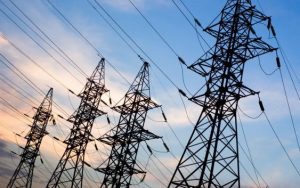Vestas, the world’s largest manufacturer of wind turbines, has expressed surprise at the lack of bipartisan support for Australia’s renewable energy targets, and suggested that Australia is the only major economy contemplating throwing their renewable energy plans in reverse.
Chris Beaufait, the regional president for Vestas in the Asia-Pacific and China, the world’s biggest wind energy market, said the potential change in support of the RET raised the issue of sovereign risk.
“We’re a bit perplexed why this is an issue, when it is working so well for the industry, for investors, and for consumers,” Beaufait told RenewEconomy in an interview on Wednesday.
Beaufait is scheduled to meet with Dick Warburton, the head of the Abbott government’s RET review panel, in Sydney on Thursday, and said the issue of risk would be high on the agenda.
“What surprises me, in a country that is typically viewed by the world as an extremely conscientious country when it comes to power generation, the impact on the environment, and on consumers, that this issue is receiving such attention and that those options include a cancellation of the policy.
“I don’t see that sort of option as drastic as that up for consideration elsewhere.”
Beaufait said the RET issue in Australia was the biggest issue for the industry in the region, where most countries had supportive policies, and China was about to meet its 100GW wind energy target ahead of time, and was aiming to double that to 200GW by 2020.
Australia has around 3.1GW of wind energy capacity, around half of which has been supplied by Vestas. The current RET target would likely result in another 8GW of wind farms, depending on its ability to compete with solar farms.
Asked about the recent comments by Treasurer Joe Hockey, who last week described wind turbines as “utterly offensive”, and similar remarks by other government MPs, Beaufait said:
“Everybody is entitled to their own opinion. All of the data that I have had a chance to see suggests that this is a minority view, and that most Australians are very supportive of renewable energy. We want to try and take the emotion out of (the debate).”
He also said: “The biggest thing we need to do is to focus on the facts and move away from speculation and opinion.
“The RET has been good for industry and it has been good for consumers. If it were to go away, that (decision) would do more harm than good.”
Beaufait said it was clear that, in most countries, wind provided a cheaper option than new fossil fuel plants. Why it needed the support of mechanisms such as the RET was because new wind had to compete with depreciated fossil fuel assets, many of them built with the support of government finance.
“It not that wind is not competitive with new installations,” he said. “When you are competing with old, depreciated facilities that have got hidden (environmental) costs, you have got to make sure that you are competing with true costs.”
And, he noted, wind energy was not reliant on any water supply, unlike other generation, particularly coal. He said this was emerging as a critical issue in many countries, but it had “slipped” from the public mind.







